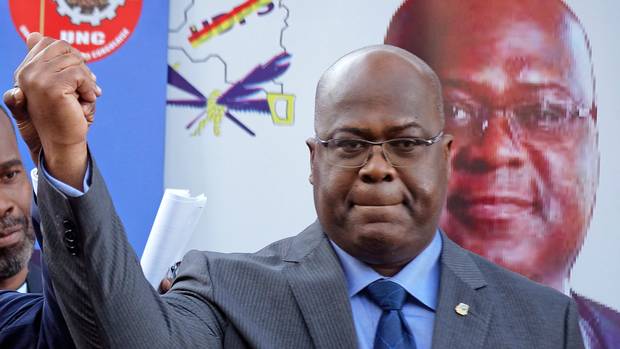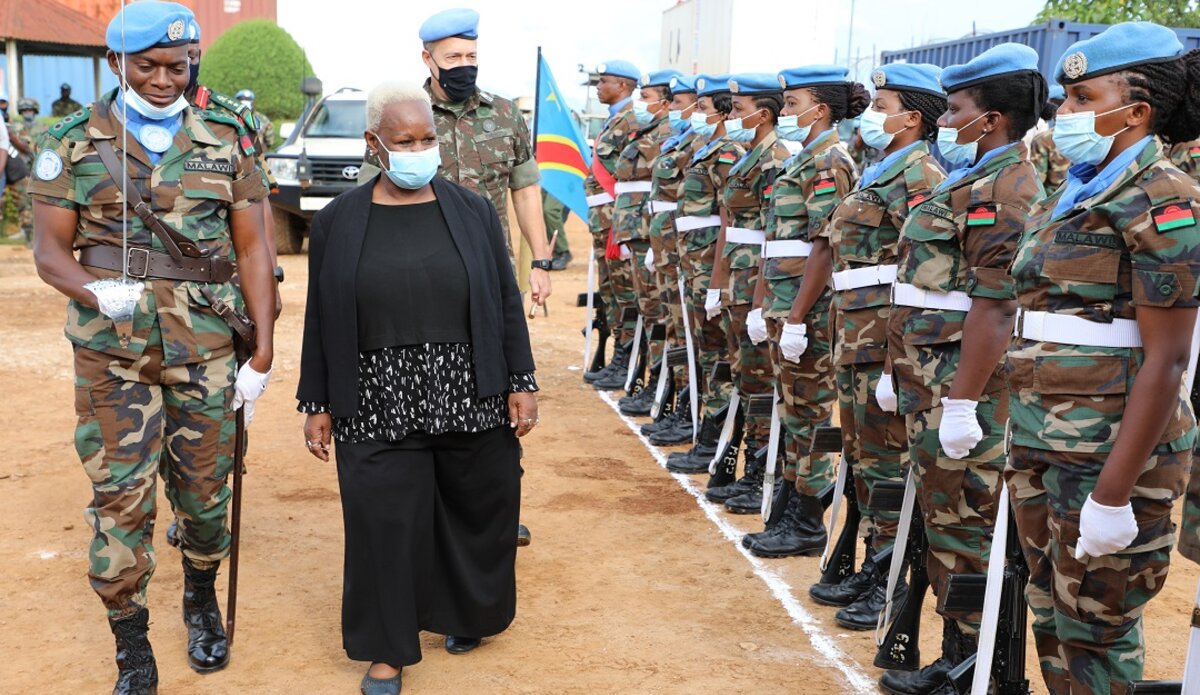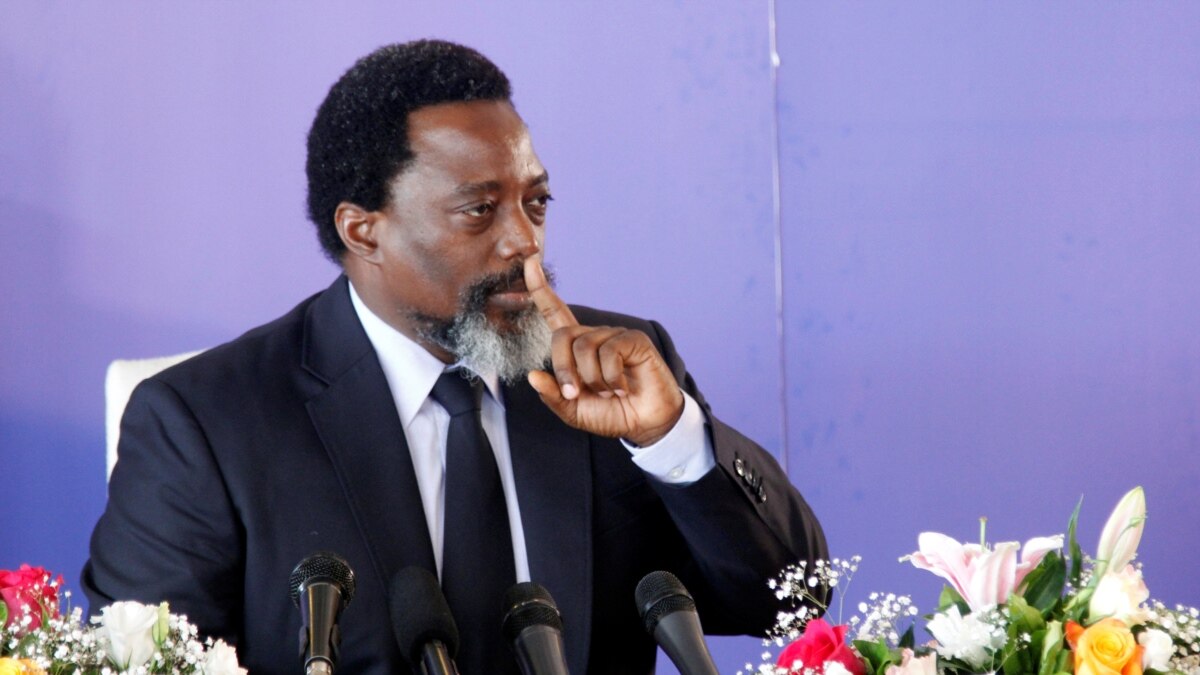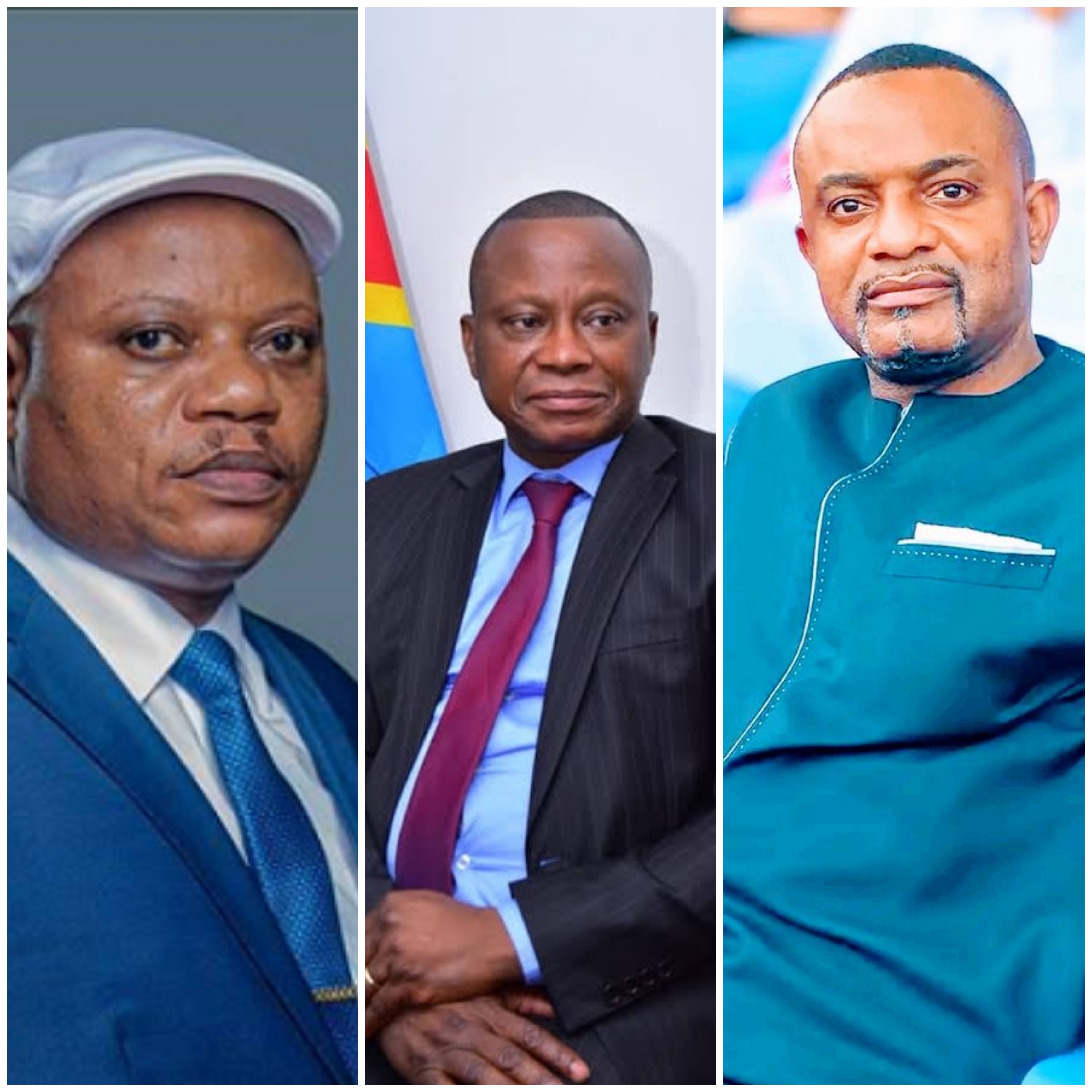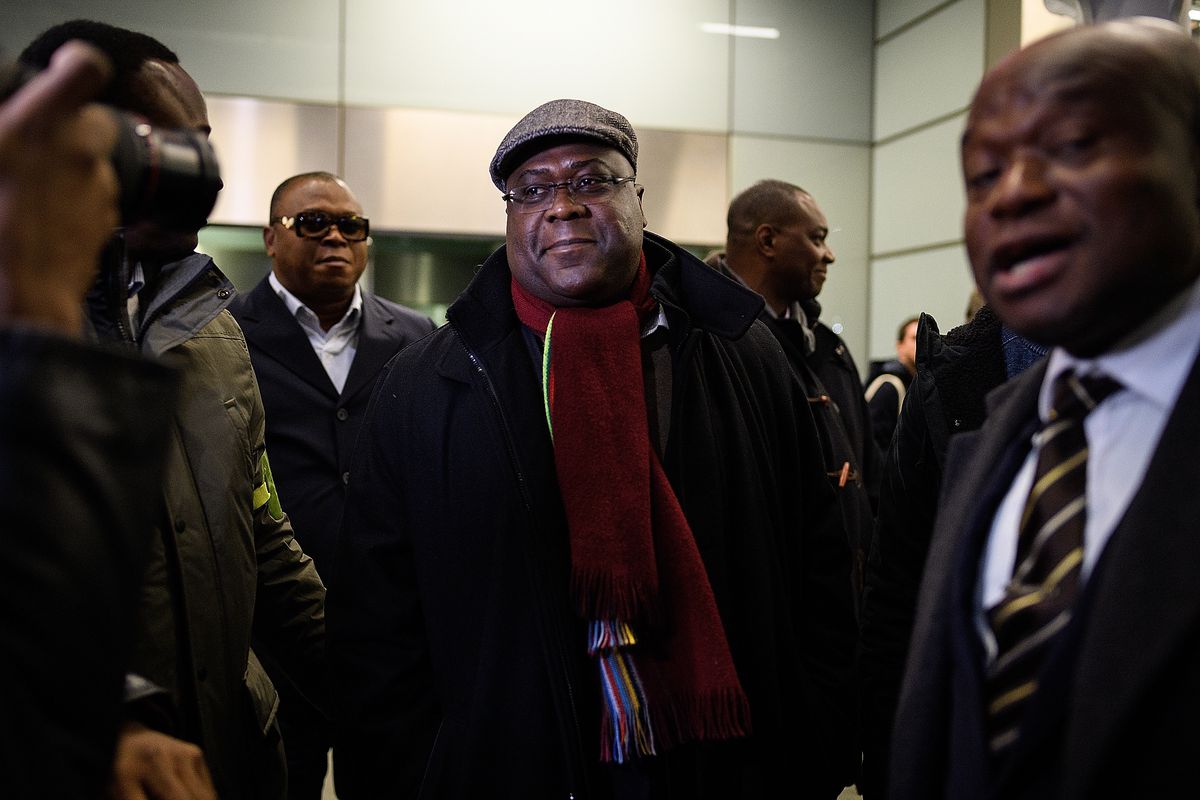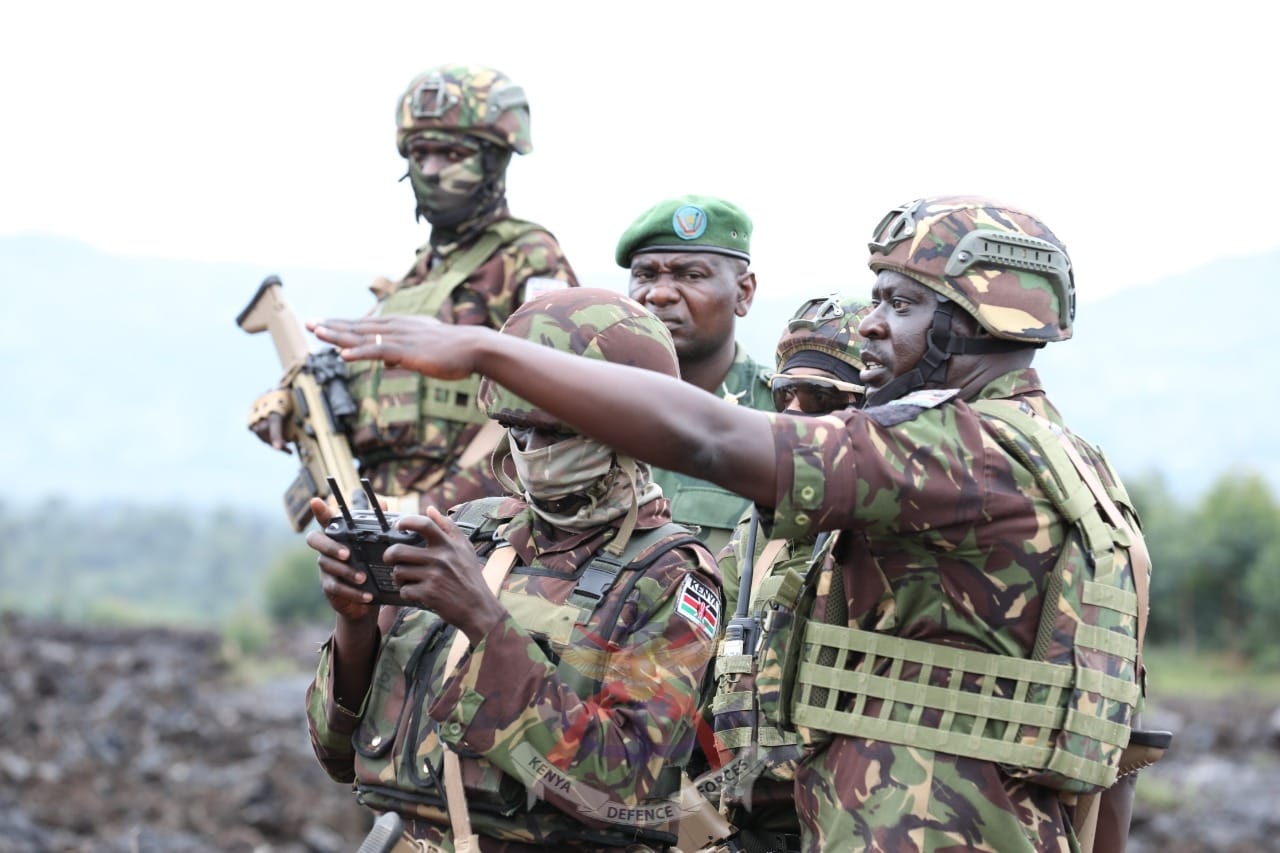Regional
What did Kikwete discuss with Tshisekedi?
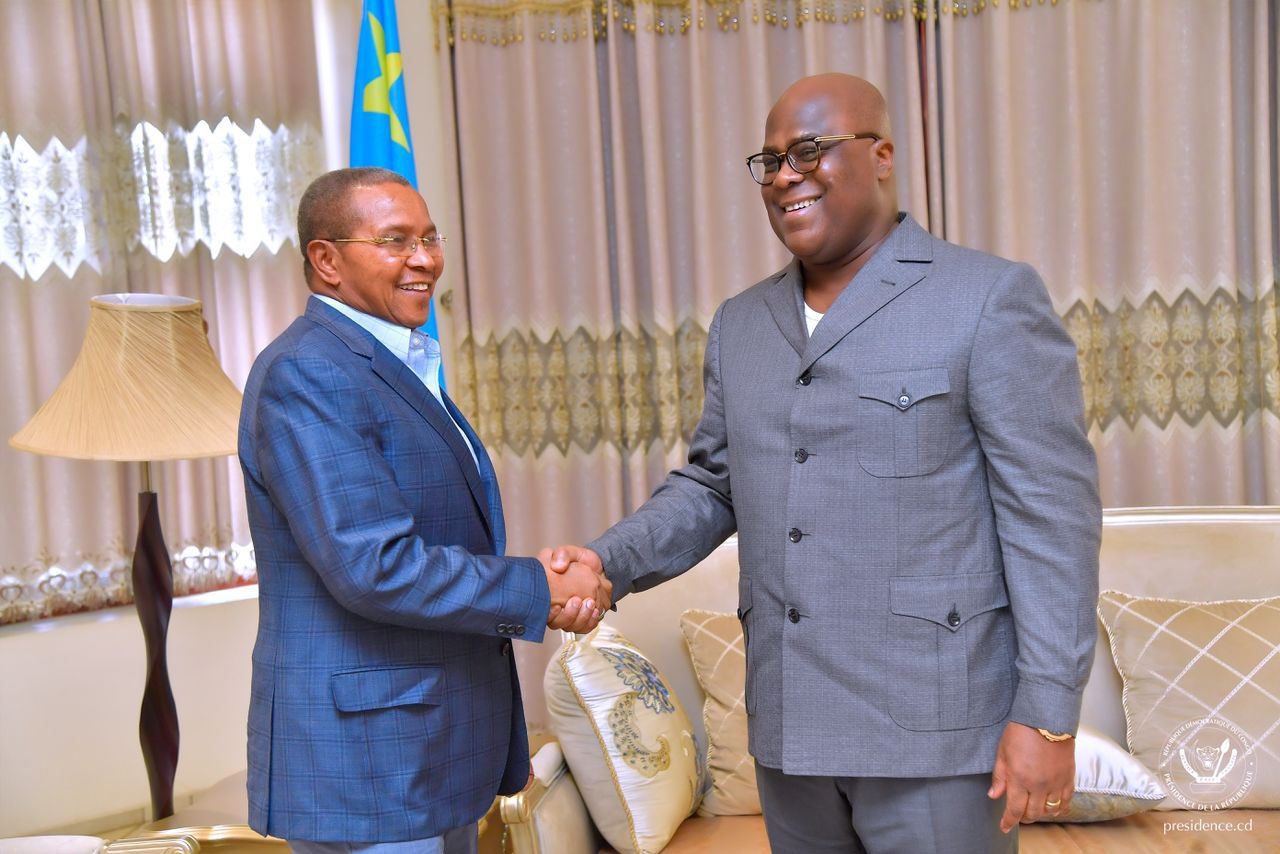
Former President of Tanzania Jakaya Kikwete (left) and Congolese President Félix Tshisekedi met in Lubumbashi on October 3.
Former
President of Tanzania Jakaya Kikwete flew to Lubumbashi, the second-largest
city in DRC's southeasternmost part, along the border with Zambia, on October
3, on the invitation of Congolese President Félix Tshisekedi.
Kikwete currently
serves as the Chairman of the Southern African Development Community
(SADC) panel of elders. His
visit came at a time of escalation of insecurity in eastern DRC, where the Congolese
army and its coalition allies resumed fighting against M23 rebels.
When
Kikwete was President, 10 years ago, the M23 grievances existed, often causing
confrontations between the rebels and the Congolese armed forces. There was a
huge chance for a diplomatic solution but that path was never considered as
Kinshasa and allies preferred the military option.
At the
time, Kikwete supported the idea of solving the conflict with a military
solution and his government provided troops, heavy weapons and ammunitions to
Kinshasa through the UN Force Intervention Brigade (FIB).
The
FIB was set up in 2013.
It had
battalions from three SADC member states – Tanzania, South Africa and Malawi. It
focused mainly on fighting the M23 rebels who had got as far as capturing Goma,
the capital of North Kivu Province.
Eventually,
the M23 rebels were forced out of Goma and some other parts of eastern DRC. But
the root causes of the rebellion were not addressed. At the time, Kikwete and
his counterparts in SADC treated the symptoms without caring about the disease.
That’s why M23 resurged.
“I
came here to listen, to speak to the President [Tshisekedi] and to listen to
him,” Kikwete noted in Lubumbashi.
Kinshasa
has been pleading with SADC to deploy troops in eastern DRC to attack M23.
In
Lubumbashi, Kikwete was undoubtedly plotting how he would influence the SADC bloc
to again deploy to DRC.
“Do
you know the current capacity of President Jakaya Kikwete? In what capacity did
he come? Yes, he is the former president of Tanzania, but he is currently the
Chairman of the SADC panel of elders,” Congolese government spokesperson
Patrick Muyaya told the press on October 3.
“You
know that we have initiated discussions with the SADC and that recently it was
agreed that a SADC standby force would be deployed in the Democratic Republic
of Congo,” Muyaya added.
Regional
leaders have on many occasions urged that a political solution such as dialogue
is the best solution to halt the current conflict in eastern DRC.
Kikwete’s
invitation happened at a time when the Congolese government was violating the
ceasefire earlier facilitated by the East African Community Regional Force (EACRF)
and the withdrawal of M23 rebels from earlier captured territories as designed
by the Nairobi and Luanda peace processes.
“Kikwete
is advising Tshisekedi to depend on the military solution as his predecessor
Joseph Kabila did in 2013,” said a regional observer, adding “this approach is
only going to add fuel to an already burning fire”.
Since
October 1, fighting between the Congolese national army, their allies
comprising of the Rwandan genocidal militia, FDLR, Wazalendo and other
militias, against the M23, erupted, further complicating matters.
The
rebels were attacked at Kilolirwe, Nturo, Gicwa, and some other areas in Masisi
Territory. In addition to the fighting, houses of Congolese Tutsi communities
were set on fire in the town of Nturo. The government coalition killed a number
of unarmed civilians and looted their property.
“The international
community is turning a blind eye to the DRC problem. No one to listen to the
grievances of the persecuted Congolese Tutsi who are fighting against an existential
threat.
“Kikwete
should have argued Tshisekedi to use dialogue for ending the hostilities in his
country. But did he? Kikwete hardly advised Tshisekedi on dialogue.”
To
attack M23, Tshisekedi is collaborating with FDLR, a terrorist group made up of
remnants of the perpetrators of the 1994 Genocide against the Tutsi in Rwanda.
When
he was president, Kikwete asked Rwanda to dialogue with the genocidal militia.
This kind reasoning indicates that Kikwete is a supporter and sympathiser of FDLR, directly or indirectly, who is not against Tshisekedi’s approach of arming and backing the genocidal militia.



